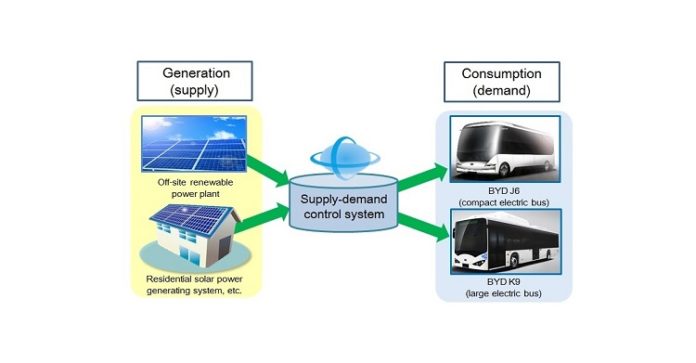With a joint development project, Kyocera and BYD Japan, the Japanese subsidiary of the Chinese electric vehicle manufacturer BYD Co. Ltd, want to take CO2-neutral mobility a step further. The two companies plan to develop an integrated energy supply system for electric vehicles from renewable energies.
Kyocera will contribute its expertise in photovoltaics, BYD will install the system in its electric buses. The project aims to maximise the effectiveness of renewable energies, significantly reduce power losses and maintain a stable energy balance between supply and demand. Kyocera will also develop the energy management system for this project. It will optimally manage the balance of supply and demand between power generation and consumption through the use of aggregation technology.
This technology has been developed in recent years in test projects of the Virtual Power Plant (VPP). Kyocera’s renewable energy generation system will also be integrated into this system. Meanwhile, BYD will supply two models of electric buses: K9, a large electric bus already available on the world market, and J6, a compact electric bus specifically designed for the Japanese market, which will be available in spring 2020.
In addition, BYD will contribute its technological expertise in the development of electric buses and its experience with energy consumers to the project consultation. Since the 2015 Paris Agreement, countries and private companies around the world have been working to develop innovative solutions to combat global climate change.
As automobiles contribute significantly to global CO2 emissions, improving their energy efficiency has become a priority. In Japan, the Ministry of Economy, Trade and Industry (METI) is promoting the use of electric vehicles as part of its well-to-wheel zero emission policy. It aims to reduce greenhouse gas emissions by around 80% per vehicle and up to 90% per passenger car by 2050 compared to 2010 levels.




